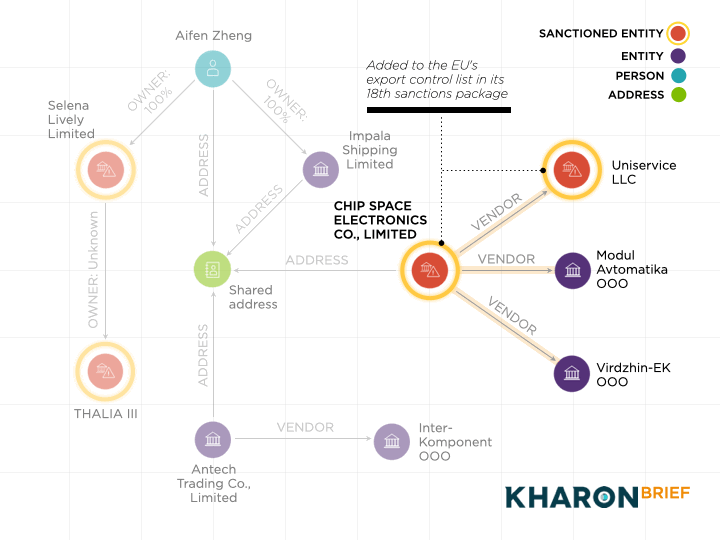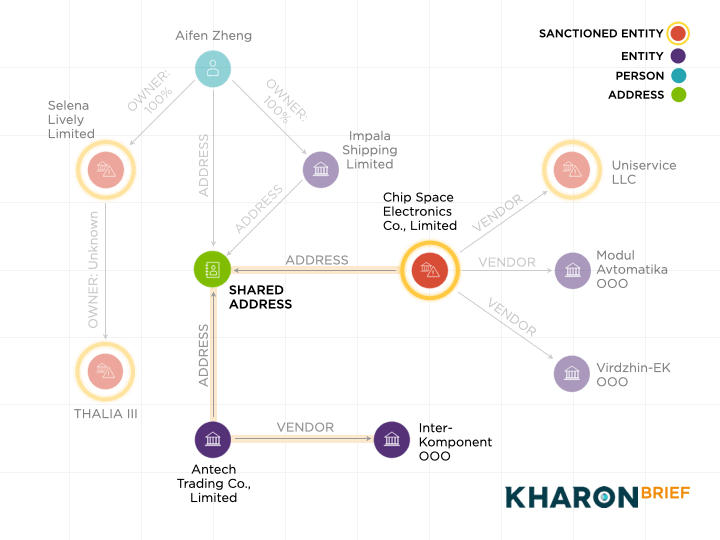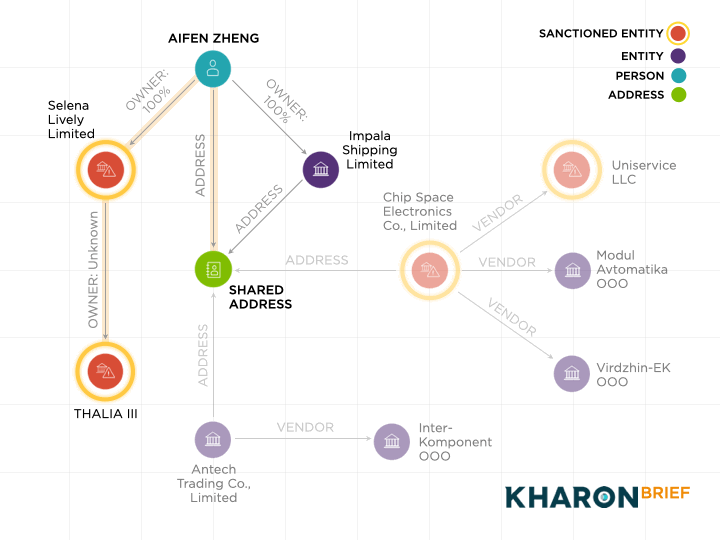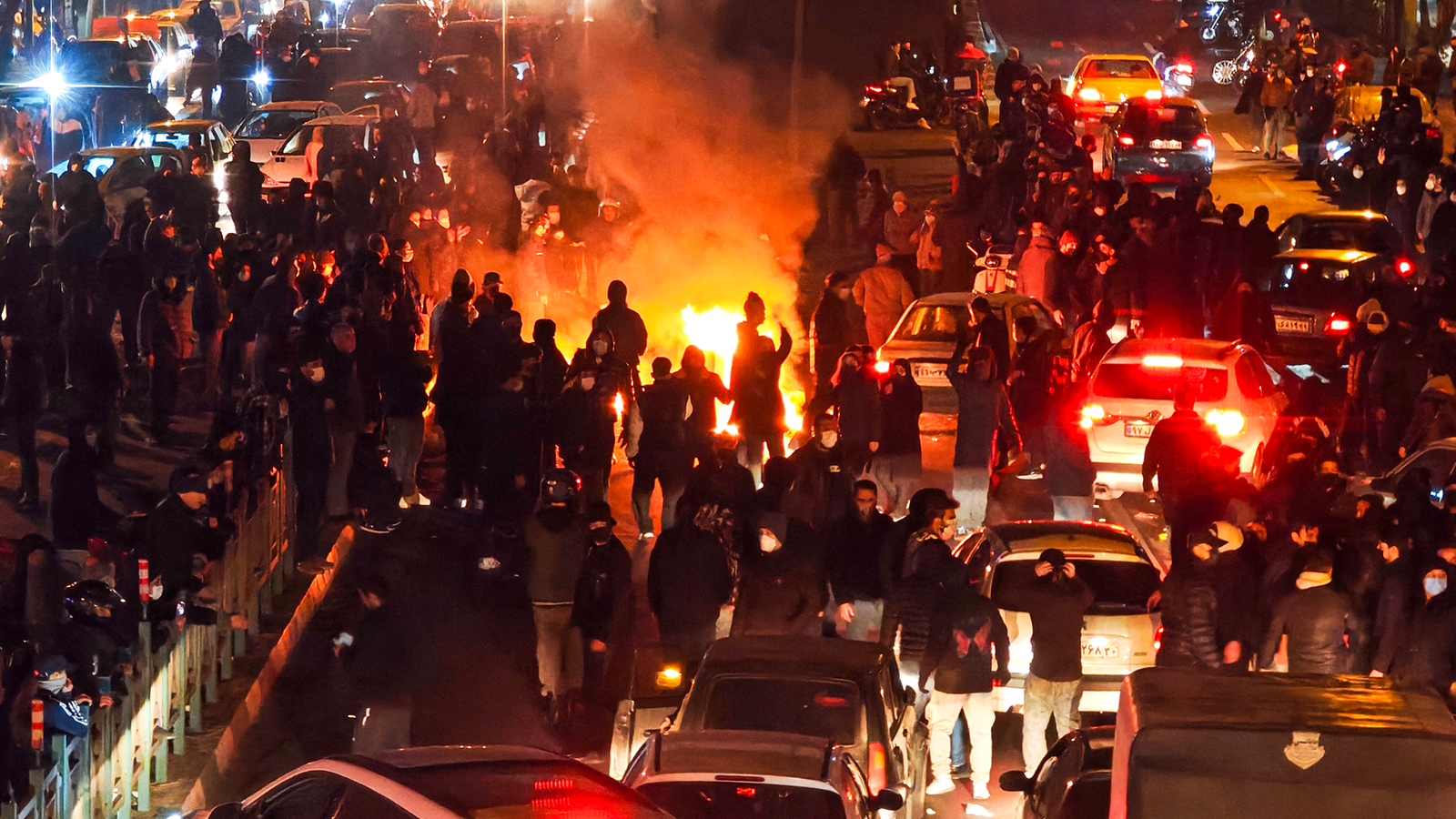The EU’s 18th sanctions package against Russia, approved last month, escalated the bloc’s measures targeting the Russian energy sector. Less prominently, though, the package also introduced a new tool that escalates its fight against sanctions circumvention — and raises the compliance stakes for companies operating in the Union.
The measure adopted by the EU Council allows national authorities in EU member states to require exporters to obtain prior authorization before shipping certain items, including dual-use goods and advanced technologies, to any third country where there is reason to believe the items could ultimately be diverted to Russia or intended for Russian end-users.
The move reflects a growing EU concern: Although its sanctions largely target Russia directly, they are routinely circumvented with the help of intermediaries operating in other countries. Now, the EU is continuing to attack its loopholes.
The details: The EU first prohibited indirect exports of controlled items to Russia back in 2022. The next year, it began mandating that exporters include a “no re-export to Russia” clause in contracts with customers in third countries — an effort to deter onward transfers.
Even with that clause, however, the EU has made clear that companies can still be held liable for sanctions violations if they fail to conduct appropriate due diligence to prevent Russian circumvention. The EU Commission has encouraged red-flag screening as part of that process.
The new authorization measure provides EU member states with a proactive tool to intervene when they suspect a shipment may pose a risk, even if the immediate transaction appears compliant on paper.
Yet trade data and identifying information about the company revealed multiple red flags for diversion risks before either listing.
Shipping records show that between June and December of 2023, Chip Space Electronics exported EU-origin electronic components — some included on the Common High Priority List (CHPL) of items believed to be sought by Russia for military use — to at least three Russian buyers. The U.S. later sanctioned one of those buyers, Uniservice LLC, for its involvement in the “production of electronic equipment and the manufacturing of information collection and processing devices.”
The measure adopted by the EU Council allows national authorities in EU member states to require exporters to obtain prior authorization before shipping certain items, including dual-use goods and advanced technologies, to any third country where there is reason to believe the items could ultimately be diverted to Russia or intended for Russian end-users.
The move reflects a growing EU concern: Although its sanctions largely target Russia directly, they are routinely circumvented with the help of intermediaries operating in other countries. Now, the EU is continuing to attack its loopholes.
The details: The EU first prohibited indirect exports of controlled items to Russia back in 2022. The next year, it began mandating that exporters include a “no re-export to Russia” clause in contracts with customers in third countries — an effort to deter onward transfers.
Even with that clause, however, the EU has made clear that companies can still be held liable for sanctions violations if they fail to conduct appropriate due diligence to prevent Russian circumvention. The EU Commission has encouraged red-flag screening as part of that process.
The new authorization measure provides EU member states with a proactive tool to intervene when they suspect a shipment may pose a risk, even if the immediate transaction appears compliant on paper.
- Fine print: The measure applies to items listed in Annex VII to Regulation (EU) No 833/2014. That list is broad, covering items like integrated circuits, semiconductor components and electronics, as well as equipment and software used in oil and gas exploration.
Yet trade data and identifying information about the company revealed multiple red flags for diversion risks before either listing.
Shipping records show that between June and December of 2023, Chip Space Electronics exported EU-origin electronic components — some included on the Common High Priority List (CHPL) of items believed to be sought by Russia for military use — to at least three Russian buyers. The U.S. later sanctioned one of those buyers, Uniservice LLC, for its involvement in the “production of electronic equipment and the manufacturing of information collection and processing devices.”

According to EU guidance, additional red flags for sanctions evasion include a party sharing an address “with multiple different companies” and current or former links with sanctioned entities. In this case, a company called Antech Trading shares its registered address with Chip Space. Antech Trading does not appear on any government list, but according to trade data, it shipped U.S.-manufactured CHPL goods and EU-made electronics to the Russian firm Inter-Komponent OOO between 2022 and 2023.

The same address is also linked to Zheng Aifen, a Chinese businessman who owns two shipping firms. One of them, Selena Lively Limited, owns the THALIA III, a vessel recently sanctioned by the EU for operating in the “shadow fleet” of oil tankers contributing to Russia’s energy revenues.

Each of those red flags tied to Chip Space Electronics could point to possible risks of Russian circumvention. Proactively identifying such connections — co-located entities, facilitators and sanctioned parties — can reveal possible exposure in a network or supply chain long before regulators take action.
More on sanctions and evasion:
More on sanctions and evasion:
- EU’s 18th Russia Sanctions Package Reworks Oil Price Cap, Moves to Choke Energy Revenues
- Inside an Intricate Shadow Fleet Crossing Russian, Iranian and Venezuelan Sanctions
- After Russia’s Invasion, This Network’s Workarounds Kept American Tech Flowing
- A Sprawling Iranian Network Is Facilitating Its Tech Exports, Sidestepping Sanctions







